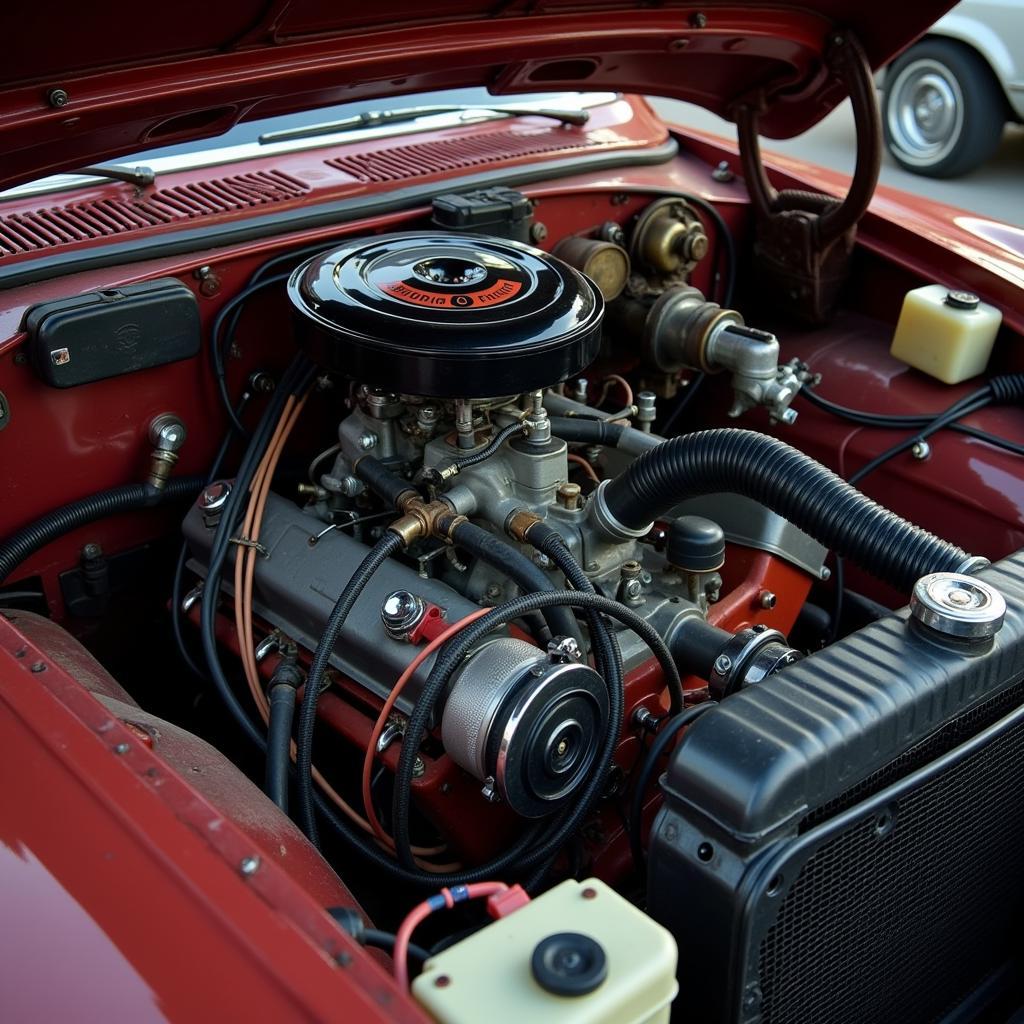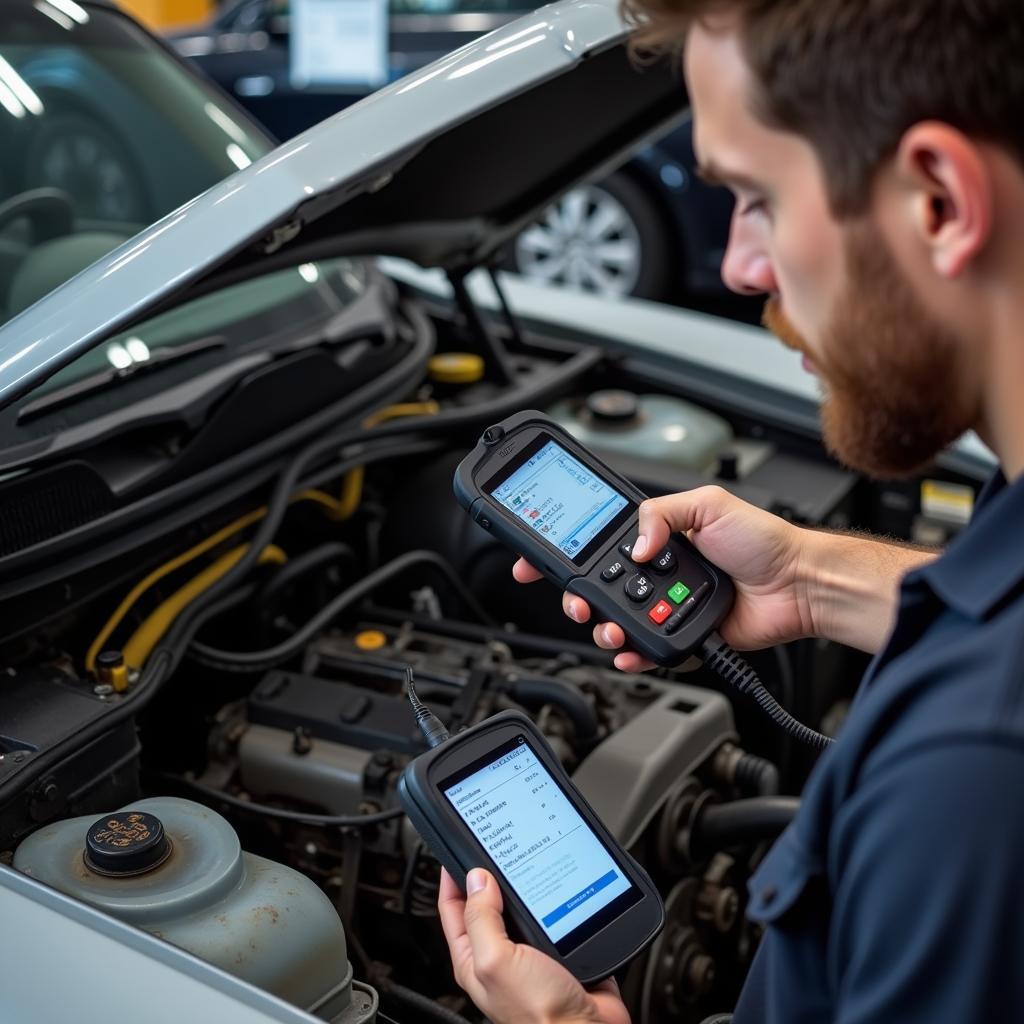The advent of onboard diagnostics (OBD) revolutionized car repair, making it easier to identify and fix issues. But what about older cars, those classics cruising before OBD became standard? Can You Use A Scan Tool In Old Cars?
The answer is both yes and no. Let’s dive into the world of older car diagnostics and explore your options.
Understanding OBD Systems & Your Car
Before plugging anything in, you need to know what you’re working with. The OBD system, mandated in the US for vehicles from 1996 onwards (OBD-II), is a standardized system that allows a scan tool bluetooth obd ii adaptor to communicate with your car’s computer, reading error codes and providing data. Cars made before 1996 may have some form of onboard diagnostics, but it won’t be the standardized OBD-II.
Here’s a quick breakdown:
- Pre-1981: Most cars relied solely on mechanical systems with no computer to diagnose.
- 1982-1995: Some manufacturers started introducing rudimentary onboard diagnostics, but there was no standardization. Each brand often had its own system and connector.
- 1996-Present: OBD-II became mandatory in the US, with a standardized 16-pin connector and communication protocol.
 Pre-OBD Car Engine
Pre-OBD Car Engine
Finding Your Car’s Diagnostic Port
If your car was made between 1982 and 1995, it might have a diagnostic port, but its location and type can vary significantly. Consult your owner’s manual or search online for your car’s make, model, and year to locate it.
Options for Scanning Older Cars
1. OBD-I Scanners
For cars manufactured between 1982 and 1995, your best bet is an obd scanner for cars under 1996. These scanners are designed to work with the early onboard diagnostic systems. Keep in mind that you may need a scanner specific to your car’s make and model.
2. Manufacturer-Specific Scan Tools
Some car manufacturers offer their own, more advanced scan tools designed for their vehicles. These tools can be expensive, but they provide the most comprehensive diagnostics for specific makes and models, even older ones.
3. Adapters
In some cases, you might find adapters that allow you to connect a standard OBD-II scanner to an older car’s diagnostic port. However, compatibility isn’t guaranteed, and the amount of data you can retrieve may be limited.
 Mechanic Using OBD Scanner on an Older Car
Mechanic Using OBD Scanner on an Older Car
4. Good Old-Fashioned Know-How
Don’t underestimate the power of experience and traditional diagnostic methods. Even without a scan tool, a skilled mechanic can often identify problems in older cars by:
- Visually inspecting components: Checking for leaks, damage, or wear and tear.
- Listening for unusual sounds: Identifying potential issues with the engine, transmission, or other systems.
- Testing individual components: Using multimeters, pressure gauges, and other tools to check for proper function.
“While scan tools are incredibly useful,” says veteran mechanic John Miller, “they’re only as good as the information they can access. With older cars, sometimes the best approach is a combination of experience and traditional diagnostic methods.”
Limitations of Scan Tools on Older Cars
While scan tools can be helpful with older cars, it’s important to understand their limitations:
- Limited Data: Older onboard diagnostic systems simply don’t collect and store as much data as modern OBD-II systems.
- Compatibility Issues: Finding a scanner or adapter that works with your specific make and model can be challenging.
- No Silver Bullet: Even with a scan tool, diagnosing problems in older cars often requires mechanical knowledge and problem-solving skills.
Conclusion
While using a bosch obd 1100 scan tool with live data on vehicles manufactured before the standardization of OBD-II can be tricky, it’s not impossible. With the right tools and knowledge, you can still leverage some diagnostic capabilities. For expert advice and the best scan tool options for your vehicle, don’t hesitate to contact ScanToolUS at +1 (641) 206-8880 or visit our office at 1615 S Laramie Ave, Cicero, IL 60804, USA.

Pingback: Scanner Won't Communicate With Car: Causes and Solutions - Car Scan Tool